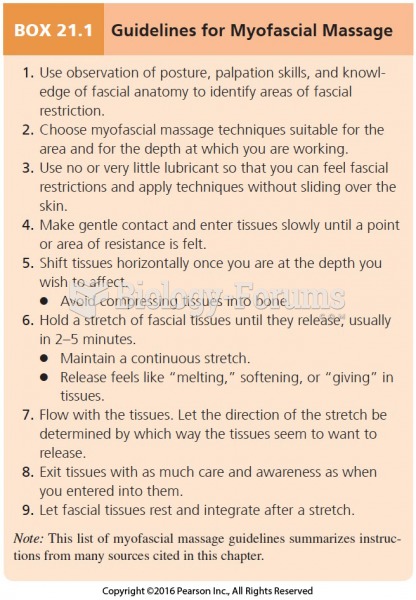|
|
|
In 1844, Charles Goodyear obtained the first patent for a rubber condom.
Nearly 31 million adults in America have a total cholesterol level that is more than 240 mg per dL.
Patients should never assume they are being given the appropriate drugs. They should make sure they know which drugs are being prescribed, and always double-check that the drugs received match the prescription.
After a vasectomy, it takes about 12 ejaculations to clear out sperm that were already beyond the blocked area.
GI conditions that will keep you out of the U.S. armed services include ulcers, varices, fistulas, esophagitis, gastritis, congenital abnormalities, inflammatory bowel disease, enteritis, colitis, proctitis, duodenal diverticula, malabsorption syndromes, hepatitis, cirrhosis, cysts, abscesses, pancreatitis, polyps, certain hemorrhoids, splenomegaly, hernias, recent abdominal surgery, GI bypass or stomach stapling, and artificial GI openings.







